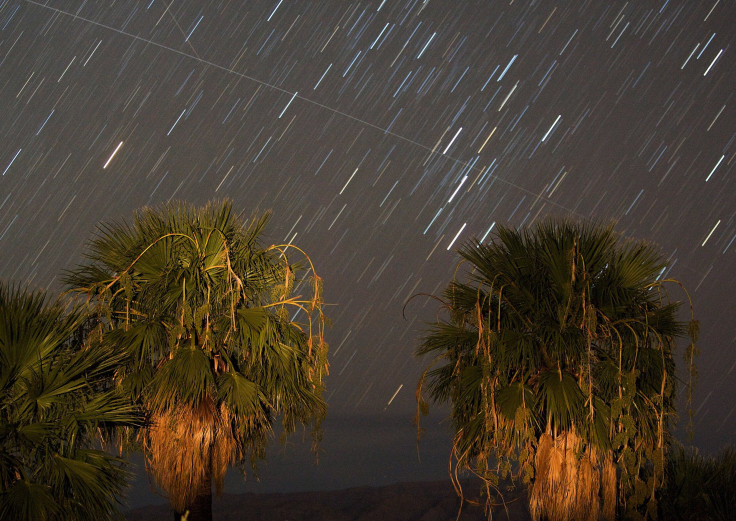Leonid Meteor Shower 2016 Live Stream: How To Watch The Shooting Stars

The Leonid meteor shower is set to peak Thursday at 6 a.m. EST, giving space fans a chance to see up to 20 meteors an hour in certain places in the United States, according to Space.com.
The shower is named after the Leo constellation, as that's where its meteors seem to originate from, according to Astronomy Magazine. Leonids themselves come from a comet named 55P/Tempel-Tuttle, which has a 33-year orbital period and sheds dust when it nears the Sun. The dust burns up to create what we call shooting stars.
The Slooh Community Observatory wrote on its website that the annual Leonid meteor shower "has offered stargazers the most reliable opportunity to see a small blizzard of meteors every few decades." Space.com noted, though, that the moon will will be very bright Wednesday night and Thursday morning — and that will hurt visibility.
"The Leonids are a very minor meteor shower until they outburst, or storm, and that's not projected to happen again until 2033," NASA meteor guru Bill Cooke told Space.com. "This year, the Leonids are not in outburst, so the rates are going to be about 10 to 15 per hour."
You're best positioned to spot Leonids if you're in the central or western parts of North America, according to Outer Places. In other locations, your best shot may be a live stream of the night sky. Slooh is broadcasting here or below starting at 8 p.m. EST.
You can see an alternate stream here, but Slooh's stream might be your best option if you're an amateur stargazer. Its experts will be explaining everything you see.
"The livestream will bring together live meteor feeds from Slooh’s flagship observatory at the Institute of Astrophysics of the Canary Islands, as well as live streams from the United Kingdom and Slooh’s HQ in Connecticut," according to a news release in the Daily Express. "These views will be accompanied by fascinating facts about the annual shower, a look into what causes these regular events, and the harrowing tale of the Greek hero Hercules and his battle with the Nemean Lion."
© Copyright IBTimes 2025. All rights reserved.






















